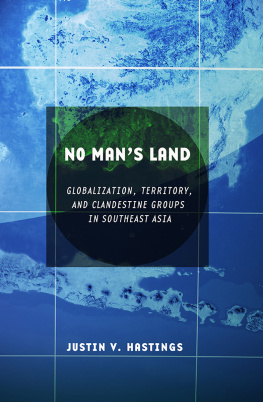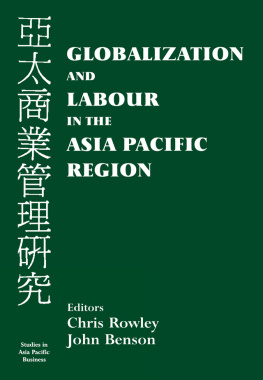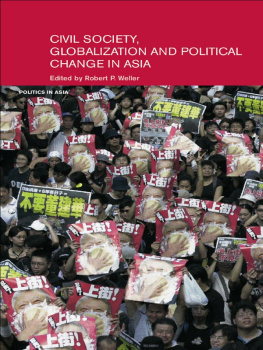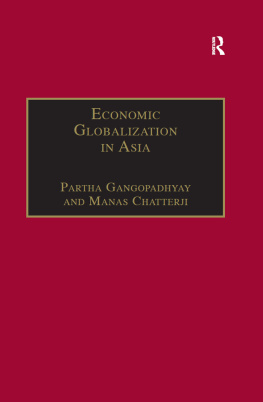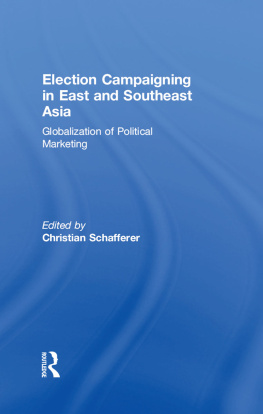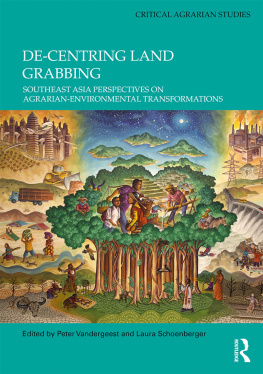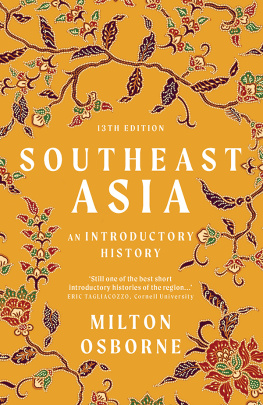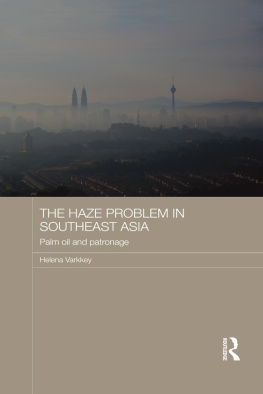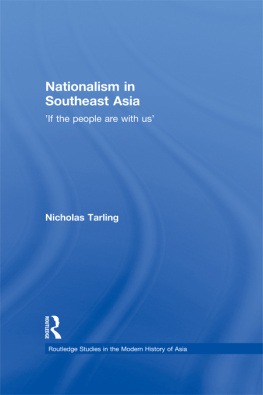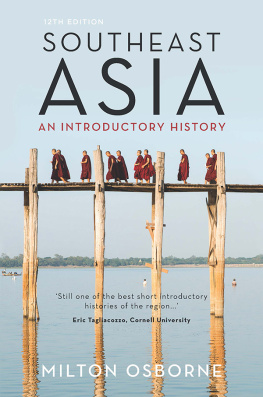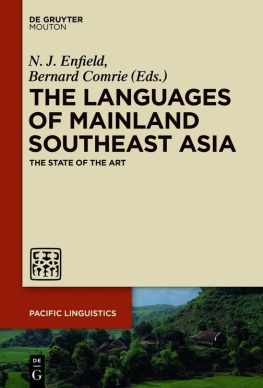Preface and Acknowledgments
I came to study Southeast Asia in general, and Indonesia more specifically, almost by accident. As an undergraduate, I spent four years studying Chinese, but when it came time to choose a senior thesis topic, I decided that staying focused on one country was too confiningparticularly if my university was going to pay for me to spend a summer wandering around doing field research. Thailand seemed as good a place as anygreat food, tropical weather, and safely exotic. As a result, I spent a month in Chiang Mai doing research that compared how Thailand and Chinas view of their ethnic minorities as national security problems affected the policies the governments adopted toward them. My experience in Thailand ignited a genuine interest in Southeast Asias people and culture.
Several years later, during my first week of graduate school, I was looking for another region to study that had problems with political violence and weak states. Less than a year after 9/11, the Middle East seemed for obvious reasons like the best place to start, so I signed up for an introductory course in Arabic. On the first day of class, the teacher went through the alphabet and asked all the students to explain why they were studying Arabic. After I gave a boilerplate response, the sociology graduate student next to me raised her fist in solidarity with some imaginary comrade and shouted, Im taking Arabic because I want to help free Palestine!
It was at that moment that I began thinking about returning to the study of Southeast Asia, a region with political violence and weak states but not quite as fraught with political tension as the Middle East. I began taking Indonesian-language classes, discovered that Indonesia too has great food and tropical weather, and never looked back. I dont remember your name, sociology graduate student, but your inappropriate outburst changed my life for the better.
Figuring out the ideas about territory held by illicit groups may be straightforward (at least for those groups that broadcast their goals), and determining the political conditions they face may be as simple as picking up the newspaper, but uncovering the ins and outs of how terrorists, insurgents, and criminals do what they do is considerably more difficult. Sources on clandestine groups are scant and often biased or simply wrong, and wherever possible I have attempted to corroborate any particular source.
The book as a whole is based mostly on documentary sources. Much of my data on Jemaah Islamiyah (JI) come from recently published books and reports in both English and Indonesian, and to a large extent the chapters on JI in this book are a reinterpretation of the conclusions of earlier researchers. To complement these sources, I also use Indonesian-language newspaper articles, police interrogation reports, and prosecutors dossiers on captured JI suspects. I treated the interrogation reports and dossiers critically, because they may have been extracted under duress. However, because I was more interested in extracting operational details than assessing the detainees state of mind or the reasons given for their alleged involvement in terrorist activities, I hope I have avoided some of the pitfalls of such sources. With that said, most of the reports are from the trials of the first Bali bombers and afterward, trials that were generally seen as fair and above board by impartial observers, so I am generally confident of the contents of those reports. Documentary information on Gerakan Aceh Merdeka (GAM) comes from newspaper articles, some police interrogation reports of captured GAM operatives, and the numerous books written in Indonesian both supporting and attacking GAM over the years. Finally, my data on maritime pirates and smugglers come from local newspaper articles, and government and think tank reports, particularly International Maritime Organization datasets.
Interviews provided supplemental information for the cases. Because much of what is known about illicit groups in Southeast Asia remains unwritten or unavailable from English-language sources, I conducted interviews in English, Indonesian, and intermittently Chinese in 2004, 2005, and 2006 in Singapore, Malaysia, Indonesia, the Philippines, Thailand, Taiwan, and Hong Kong with a variety of informants who could be divided into roughly three groups. The first group consisted of academics, businessmen, and non-governmental organization workers, who were peripherally involved with or studied illicit groups and provided context. The second group was a relatively small number of smugglers, insurgents, and retired terrorists who were involved in the illicit groups I was studying. The third group included regional police, military, customs, and intelligence officials whose job was to track down and stop the illicit groups operations. For information on JI, I talked with people who study, track down, or have been involved with the group in some way. For GAM, I conducted interviews with both Indonesian government officials and GAM leaders. For pirates and smugglers, to a greater degree than either of the other two cases given the paucity of good written sources, I conducted interviews with people involved in stopping or aiding and abetting piracy and smuggling in Southeast Asia.
The agendas behind official sources are certainly an issue, but I have no reason to believe that the terrorists, insurgents, and criminals to whom I was able to talk were inherently less (or more) biased than officials. There is a credibility problem for both state and non-state informants. Thus, where possible, I attempted to interview people on opposite sides of an issue, and corroborate interviews with written sources. I did, for instance, talk to both police and smugglers in Batam. For the most part, dueling sources agreed on the general shape of a given topic, and often even on details, although I also note where they disagreed. I granted all interviewees anonymity unless they specifically asked to be named, but recognizing that credibility is an issue, I have tried to provide enough information about sources to show that they know what they are talking about without compromising their identities.
In large part because of the nature of the research, I cannot name many people to whom I am indebted. Of those that I can name, however, Lynn T. White III at Princeton guided me through the undergraduate senior thesis process, a process that I enjoyed enough to replicate on a larger scale at Berkeley.
Kevin OBrien agreed to be my adviser even after I left the safe confines of Chinese politics, and provided incisive comments during the many drafts of my dissertation. Ron Hassner encouraged me to keep an inherently interesting subject actually interesting. T. J. Pempel supported my research and introduced me to the Pacific Forum Young Leaders Program. Tom Gold leaped into the breach at a critical time. All of them were willing to take on what is a rather unusual topic within political science. Scott Sagan, Lynn Eden, and Don Emmerson at Stanford Universitys Center for International Security and Cooperation provided much needed comments on an earlier draft of this work.
During my fieldwork, the Institute of Defence and Strategic Studies at Nanyang Technological University in Singapore gave me an office, an affiliation, and a dorm room to call my own. The Centre for Strategic and International Studies provided me with an office, lunch partners, and absurdly cheap photocopying assistance whenever I was in Jakarta. Jean Hung of the Universities Service Centre at the Chinese University of Hong Kong was also a gracious host. Carolina Hernandez and the Institute for Strategic and Development Studies in Manila helped arrange interviews in the Philippines.

